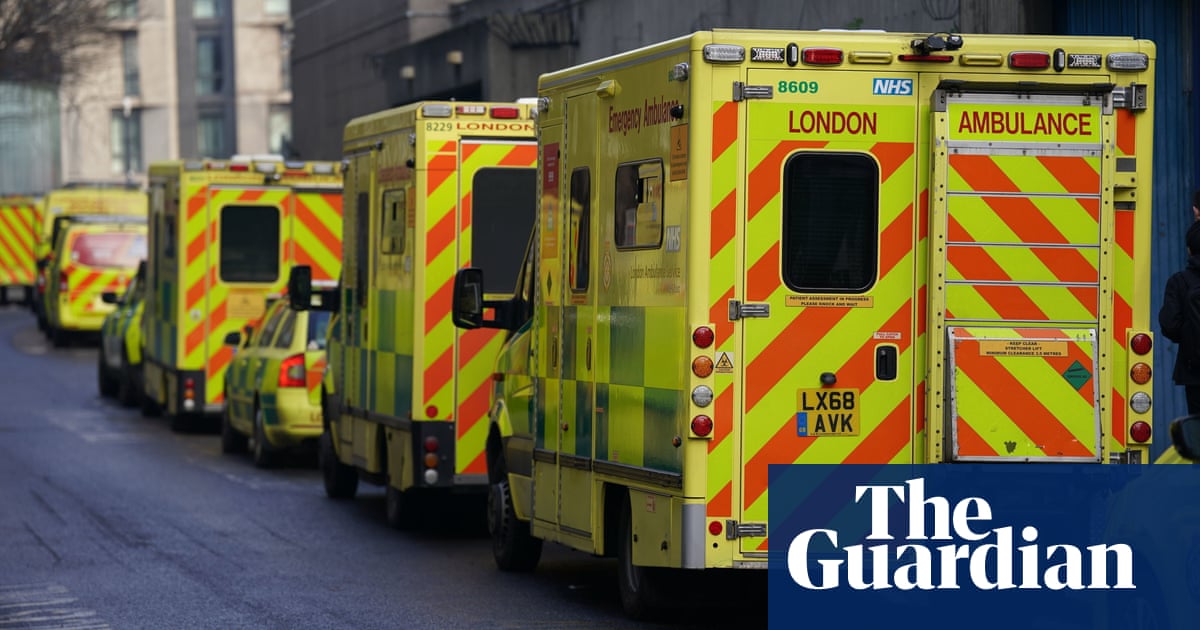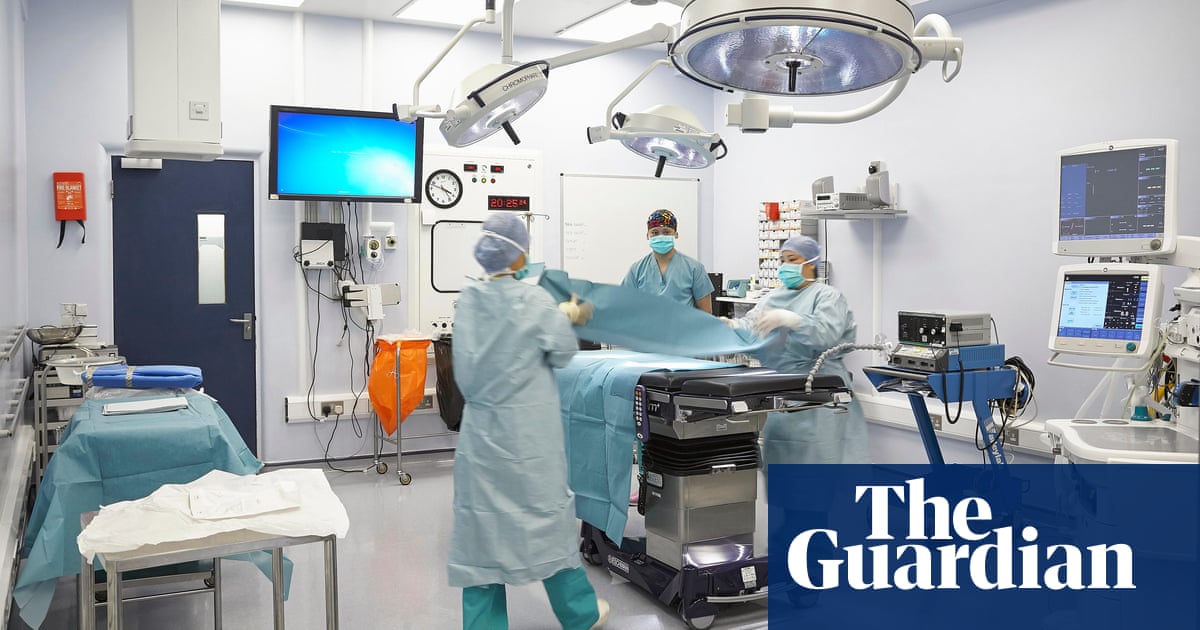
he clapping has died away, paper rainbows in windows curl at the edges, and the NHS is under siege. “Support for the NHS may soon start to crumble,” reports the Centre for Health Communication.
“Start to? It has,” says one seasoned hospital chief executive I check with regularly. Emails thump into his inbox daily from angry patients waiting for diagnostics and treatments: “They’re coming direct to me now.” As 50,500 people across England have been waiting over a year, he says, “my waiting times are horrible. Pre-Covid I had just four people waiting for a year, but now it’s over 1,200 – and we’re absolutely not the worst.”
Public gratitude remains deep for frontline doctors and nurses, some of whom died while we stayed home safe. But anxiety and some anger is growing among waiting patients, frightened by well-publicised estimates of needless non-Covid deaths due to delayed treatment. Lawsuits against hospitals and care homes threaten, after at least one in eight Covid-19 patients caught it while in hospital.
Here’s the scale of it: the Nuffield Trust records 48% of people who require treatment waiting beyond the 18-week limit, the worst since records began. Don’t blame all these delays on Covid-19: the 18-week target has been missed for four years by an NHS weakened by a decade of its harshest ever funding. A quarter of patients, following an urgent GP referral, wait over two months for their first cancer treatment – another target unmet for years. If your cancer referral is from a screening programme, 87% are now left anxiously waiting over two months for treatment.
Expect natural enemies of the NHS to swoop down on its weaknesses. Sure enough, both the Daily Telegraph and the Times have splashed with a claim – made by a private company bidding for NHS contracts – that the “hidden” waiting list is 15 million. Medefer offers consultants (taken from the NHS) to triage patients who have been referred by GPs, treating them online to divert them from referrals to NHS hospitals. Watch other private sector vested interests stoke fears that the NHS can’t cope.
The usual ideologues who always claim the NHS is unsustainable are dusting down tired old plans for private insurance, private top-ups or any other way to demolish the universal free service. Meanwhile, billions have been splashed – without tendering – on favoured private companies who failed to provide personal protective equipment or test and trace. Around £100m is spent, untendered, on Covid-19 consultants – and not on useful medics but on companies such as Deloitte.
These waiting times rightly spook the government, but their panicked response is the usual – apply the whip, as if laziness were the cause. Trusts must produce 90% of the same activity as last year by next month or face a financial penalty. There’s a bonus for exceeding last year’s treatments, but the NHS Confederation says most will “fall short” – because social distancing means six-bay wards are reduced to four beds, and staff are slowed by frequent PPE changes. Despite an influx of nursing and medical students fast-tracked into service, the NHS is still short of 80,000 doctors and nurses, due to the disastrous 2010 training cuts. No foreign staff are arriving, and the Home Office is foot-dragging on visas for overseas doctors already here and waiting to work.
“Whatever it takes” was the original message from the chancellor back in March. Now it’s financial penalties. But trusts haven’t yet been given their budgets, and the Treasury says expect no extra. The NHS received a 3.4% settlement, but the Institute for Fiscal Studies said it needed a minimum of 4% to stand still, and 5% for Boris Johnson’s 40 new hospitals and 6,000 more GPs (whose numbers have fallen again).
The Care Quality Commission promises milder inspections but the NHS Confederation wants them to call off their dogs altogether. My hospital chief says it’s no time for punitive inspections, “asking us to collect gigabytes of data, and judging us after interviewing a couple of patients, a couple of nurses”. With no budgets yet, trusts expect penalties for future overspends. NHS England’s long-term plan is to encourage community and hospital services to pull together in local integrated care systems to ease backlogs. That means unpicking Andrew Lansley’s monster 2012 NHS act that enforced financial competition between trusts – but ministers are backing off reopening that can of worms with a new reform bill.
Yet despite waiting lists and staff shortages, the emergency has sparked a burst of NHS creativity. Ingenious trusts have set up MRI scanners in car parks. Others accelerated operating times by prepping patients over the phone and escorting them straight from the front door into anaesthetics. Can the NHS hold on to radical changes to local hospitals, or will local campaigners demand the return of their A&Es?
Where clinicians broke out of their silos and healthcare assistants quickly trained up to do more nursing work, will professional bodies try to restore old red lines?The outpatient and GP consultations now conducted online will surely stay. But watch anti-abortionists try to rescind easier abortions after 90,000 early pregnancies were terminated with pills over the phone.
The autumnal chill reminds the NHS that winter is coming – it fears flu, a second wave of Covid-19 and Brexit crashing in on its austerity-weakened state. Patients grow impatient. Within the NHS there is an almost mystical belief that a day of reckoning will come. They are filing their evidence for “the great inquisition”. But after such epic mishandling, it takes monumental optimism to imagine this government will ever conduct a meaningful Covid-19 postmortem.
• Polly Toynbee is a Guardian columnist












